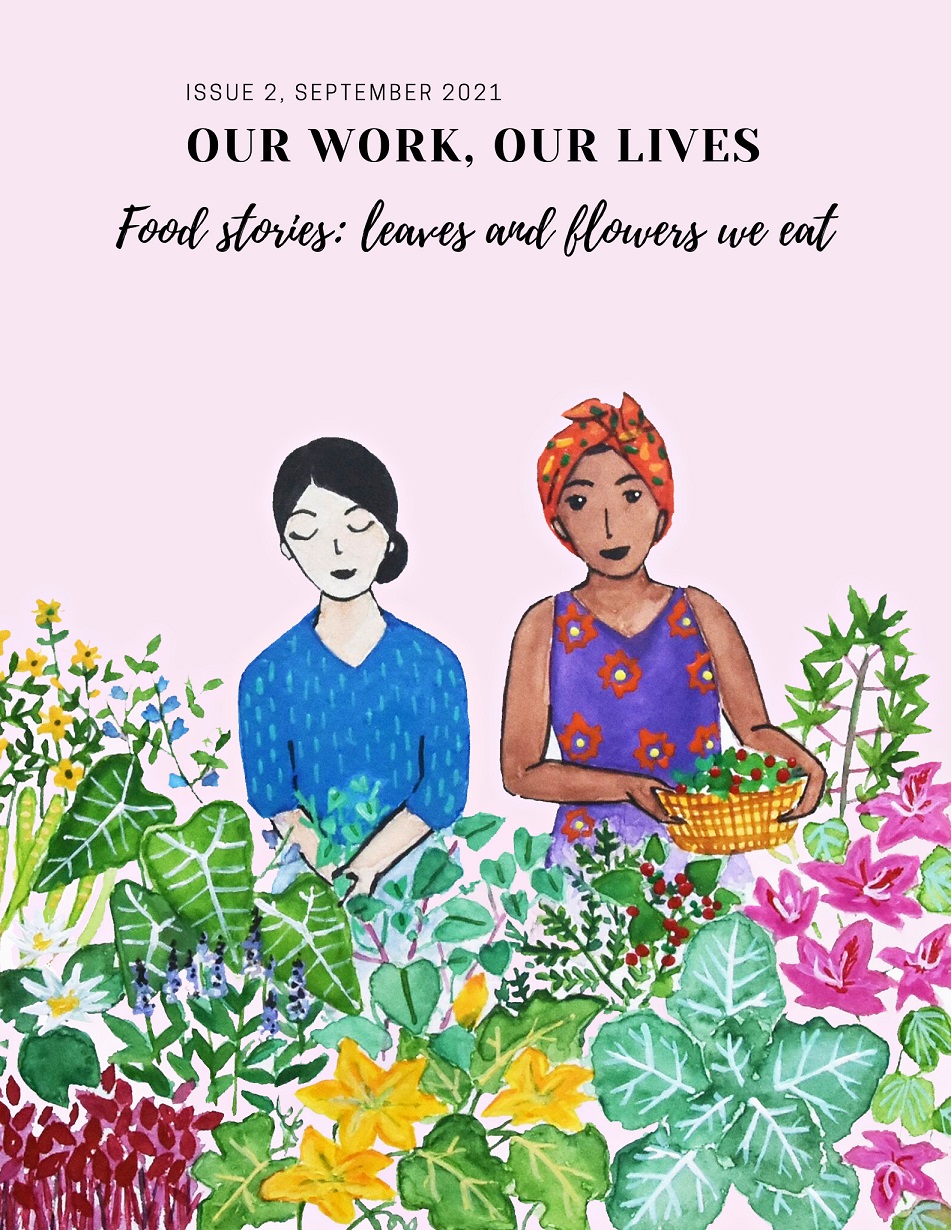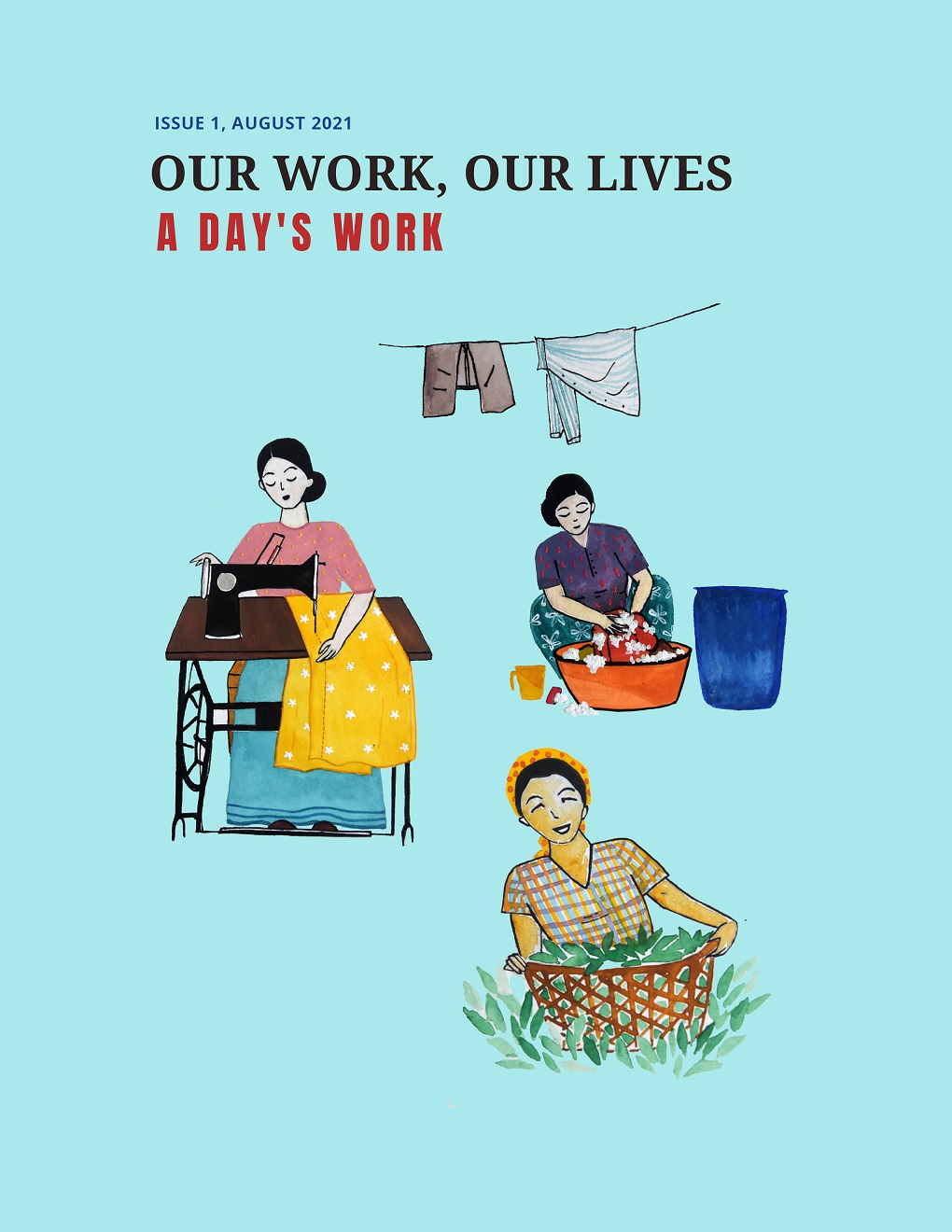
Our Work, Our Lives, issue 2: Food stories
Dear Friends,
We are delighted to bring you the second issue of Our Work, Our Lives. The theme of this month is Food Stories: leaves and flowers we eat.
Food stories are political. Policies decide who gets to eat what, how much and who makes profit on the backs of food producers. Struggles for food security and sovereignty are also integrally linked with people’s struggles to realise their rights to land, water, forest, safe environment, livelihoods, and health.
Hunger is on the rise, with as many as 811 million people worldwide going to bed hungry every night. Even though small farmers, fishers, and indigenous people produce about 70 percent of the global food supply, they are the ones who experience food insecurity. Six out of ten people who are food insecure are women. In the words of Michael Fakhri, the UN Special Rapporteur on the Right to Food, “Hunger, malnutrition and famine are not caused by inadequate amounts of food. They are caused by the political failures that restrict people’s access to adequate food.”

Our Work, Our Lives: GAATW’s New E-Magazine
By Bandana Pattanaik
In mid-2020 when we were still sceptical and confused about online work, our colleagues in Indonesia made us feel hopeful. By holding a series of inter-movement dialogues online, they showed us how to push the limits of digital communication. As my colleague Cris and I participated in the strategic conversations via WhatsApp translation while watching the speakers via Zoom, we realised that ingenuity might be the only way forward. Our colleagues from Self Employed Women’s Association (SEWA) in India and JALA-PRT in Indonesia inspired us by developing political education handbooks for domestic workers at a time when they were also busy organising emergency support and alternative livelihood for the workers.
By early 2021, we were ready to start online conversations on women, work, and migration with our members and partners located in places with limited and unreliable internet connections. Many of these colleagues work closely with migrant and local women workers in low-wage jobs – the workers hit hardest by the ongoing pandemic. Our discussions led us to talk about women workers’ agendas for change. We also wanted to know if our colleagues facilitate workers’ organising and education.
This is how we began an experimental initiative called Women Workers for Change. It brought together twenty-five GAATW members and partners from Africa, Asia, and Latin America working with women who earn their living from domestic work, sex work, agriculture, weaving, entertainment work, garment sector work, home based work and any available daily wage work. Additionally, most of these women do all the care work for their families. These structured online discussions, which were held between April and July 2021, were an opportunity for mutual learning and strategy sharing. We now notice that those who had not focussed on workers’ organising before felt inspired to do so and want to develop their organising skills. Those who were already self-organised or worker-focussed have begun taking proactive steps towards deepening political education of workers.
